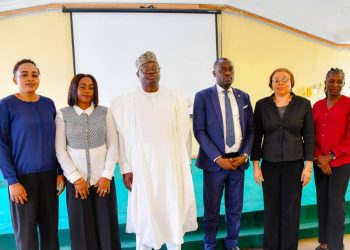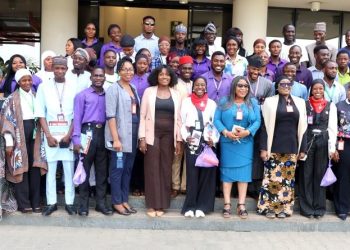By Nkechi Eze
Prof. Mahmood Yakubu, Chairman of the Independent National Electoral Commission (INEC), has expressed concerns about the rising costs and logistical challenges of frequent by-elections in Nigeria, emphasizing the need for legislative reforms to establish more cost-effective measures.
Yakubu, stressed the need for legislative reforms to create more cost-effective ways to fill vacancies in the National and State Assemblies during a consultative meeting with political party leaders held on Wednesday 22nd January, in Abuja. He emphasized that the current system is unsustainable and that reforms would help reduce the financial burden of frequent by-elections.
Yakubu said that INEC had been appealing to stakeholders, including political parties, to join the advocacy and for the national assembly to amend the law accordingly.
“Since the current national and state assemblies were inaugurated in June 2023, a total of 23 vacancies have arisen in various constituencies over the past year and a half. These vacancies have resulted from the death of serving members or their voluntary resignation to take up executive positions at the federal, state, or local government levels.”
According to him, this is as a result of death of serving members or voluntary resignation for executive positions at federal, state, local governments.
He said some also resigned due to their appointment as ministers, commissioners, chairman of a local government or as a board member or chairman.
“While the commission has conducted nine by-elections early last year, 14 more vacancies have occurred since then.
“These by-elections are unpredictable, unbudgeted, and challenging to plan. Worse still, some by-elections trigger additional ones. For instance, a by-election for a senatorial seat vacated by a House of Representatives member leads to another by-election for the vacated House seat, which then requires a State Assembly replacement,” Yakubu explained.
He lamented the financial burden of these elections, adding, “One by-election has the potential to lead to three others, diverting the commission’s attention from its broader electoral responsibilities.”
Yakubu renewed the commission’s call for electoral reforms, highlighting the effectiveness of alternative systems used in other countries to fill vacancies.
He disclosed that INEC has been pushing for electoral reforms since 2016, and recently reiterated this call during its 2025 budget defense before the National Assembly.
Outlining plans for key elections, including the Anambra State Governorship Election slated for November 2025 and the Federal Capital Territory Area Council Election scheduled for February 2026, Yakubu stated that; “Primaries for the Anambra election will hold between March 20 and April 10, 2025. Additionally, the FCT Area Council election is set for February 21, 2026, to elect six Area Council Chairmen and 62 Councilors.”
Yusuf Dantalle, National Chairman of the Inter-Party Advisory Council, emphasized the crucial role of credible elections in maintaining Nigeria’s democratic system, highlighting the need for transparency and accountability in the electoral process to ensure the country’s democracy endures.
He emphasized the need for INEC to uphold transparency and fairness in the forthcoming elections, specifically the Anambra State Governorship Election slated for November 8, 2025, and the 2027 General Elections, to ensure the integrity and credibility of the electoral process.
Dantalle urged the National Assembly to speed up changes to the constitution and Electoral Act, and to also quickly pass the 2025 budget as this will support the INEC’s preparations for upcoming elections.















